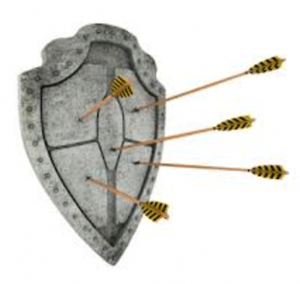How Do I Avoid a Future Will Contest?
How Do Draft a Will Which Will Stand Up to a Contest for Diminished Capacity or a Medical Condition?
People with diminished capacity or a medical condition who can still make a Will but are concerned that it may be challenged after their death need defensive estate planning. They need someone to make sure that the Will is as solid as it can possibly be under the circumstances.
New York law states that to make a valid Will, a person must know who their relatives are and what their assets are. So even if someone is suffering from a medical condition that is affecting the brain, such as Alzheimer’s or degenerative brain decease, or someone has dementia, they may still have the capacity to make a will.
Straight-forward wills that the entire family agrees with do not present a problem even if the person making a will has diminished capacity. But where some relatives are excluded over others, or when the will-maker is changing a prior will to someone’s detriment, defensive drafting is essential.
Defensive will drafting is the key to avoiding a New York will challenge. The first step is to identify a situation where the will execution may be susceptible to a will challenge. Like doctors, attorneys don’t always get perfect cases. For example, there are times when someone with diminished capacity wants to execute a will, even to exclude some of their close relatives from the will. We do not have to turn those people away. But what we must do, is to make sure that the client is making a will out of their own accord, not because they are being unduly influenced by someone else
Defensive will drafting starts with the phone call requesting the appointment. We prefer that people who make wills request their own appointments – when the caller requests an appointment for someone else, we get suspicious. Again, it does not mean that we will automatically turn that person away, but it does mean there will be some more prodding and security measures.
Similarly, if the potential will maker is an older person, or someone with an illness that affects their mental state, and is brought in by someone who is benefitting from a will, we do naturally get suspicious and more prodding ensues. If the will-maker came in with someone else, we ask the chaperone to stay outside and do not allow them into the office when we are interviewing the client.
When the will maker comes in, the attorney gives a “visual exam” similar to the way a doctor would (without touching the client, obviously). The attorney then asks questions about current events to make sure that the potential will maker is “alert plus one”. The estate attorney also asks about the testator’s family (possibly making a family tree) and assets, to make sure that the person knows what their family and assets are, as is the requirement of New York estate law.
We ask will makers about their medical condition, but if a person who comes in is alert +1 and is able to talk about their family and assets, New York law states that they have the capacity to make a will.
If the will maker has a medical condition, or is older, or is documented to have diminished capacity, a video of the execution of the will may be good practice but it could also backfire.
As a New York estate practioner, it is good practice to take detailed notes on a will execution. We may decide to ask the will maker to create a family tree with the will-maker and have them sign it to make sure that no heir has been left out of the will unintentionally that might come back after the decedent’s death and contest the will. We talk to the will-maker and find out if there is someone they are intentionally omitting from the will and ask them why, and document the answer.
If you are a person who is older or has a medical condition or diminished capacity, you may still be able to make a will. Call the Law Offices of Albert Goodwin at (212) 233-1233.

